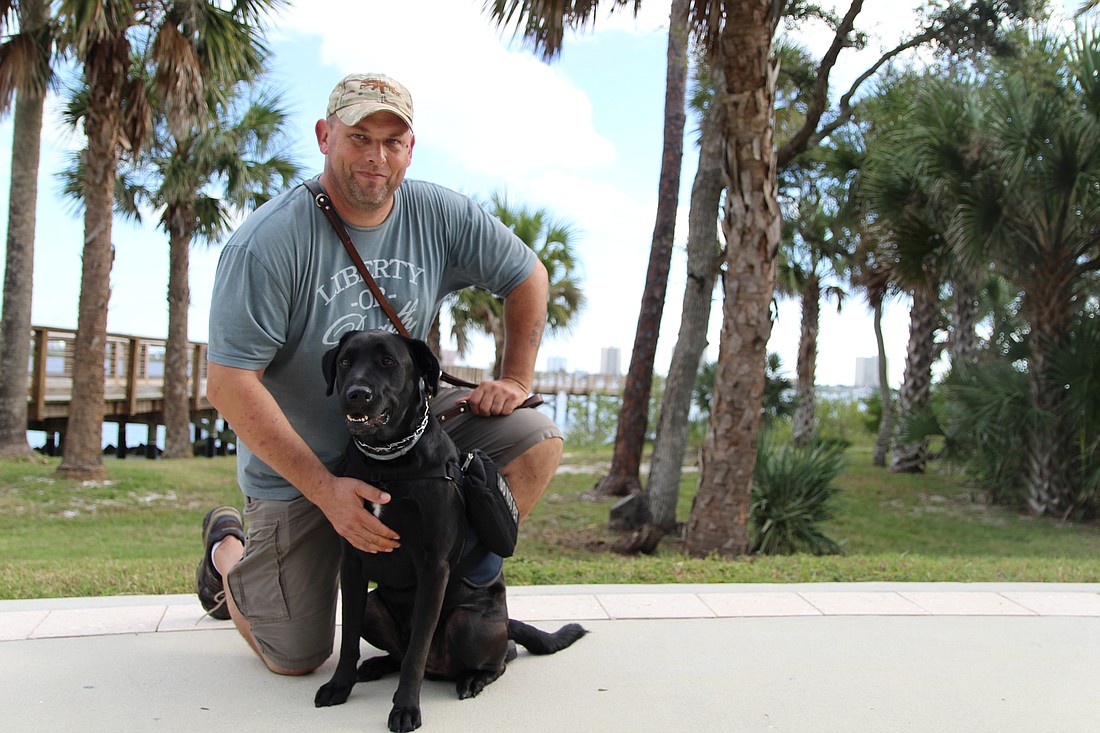- April 26, 2024
-
-
Loading

Loading

Kathy Jensen, president of the American Legion Auxiliary Unit 270 of Port Orange, knows firsthand the value of a service dog.
Her son, who served in Afghanistan, was diagnosed with post-traumatic stress disorder and always has his trusted Doberman by his side.
That’s why this year the organization presented a check for $15,000 to sponsor a dog for K9s for Warriors, a national organization that pairs service dogs with veterans affected by PTSD, traumatic brain injury or military sexual trauma. The goal is to help veterans return to civilian life.
Dogs trained through the program also benefit from the program: Many are adopted from area humane societies or high-kill shelters and trained to become service dogs for veterans.
Jensen said the group toured the facility and learned about its services, and it became clear that they needed to get involved.
“It gives me goosebumps,” she said. “It’s amazing.”
The group then dedicated 10% of donations and earnings from bingo games, dinners and chance drawings to raise money for the sponsorship.
Jensen said the group has not met their dog or veteran yet, but hundreds of success stories help paint a picture of how their donation will help.
Take Jason Portell, of Ocala.
Portell, a U.S. Navy veteran, served as a fleet sailor on the USS Kitty Hawk for four years and during the last few years of Operation Desert Storm. He later went into the U.S. Navy Reserve and was reactivated for the Iraq War.
He was formally diagnosed with PTSD, which affects approximately 12% of Gulf War veterans, according to the U.S. Department of Veteran Affairs.
Portell struggled to leave the house and avoided crowds. A service dog could help him manage the symptoms.
“It was exciting but a little intimidating because I’ve never had a dog,” he said.
He met Slider, a now-4-year-old black Labrador, two years ago. Slider was sponsored by a burger restaurant in St. Augustine, which is how he received his name.
The first couple days of training involved getting to know his classmates before he met his match. They trained together for three weeks.
Since then, Slider has helped Portell handle any anxiety or stress he feels. He said it’s difficult for veterans to integrate back into society, and having a service dog helps. Most people often approach him to learn more about Slider, and that can work as an ice breaker or make Slider the focus of the interaction.
“I don’t know how to describe it, but he just keeps me calm,” he said.